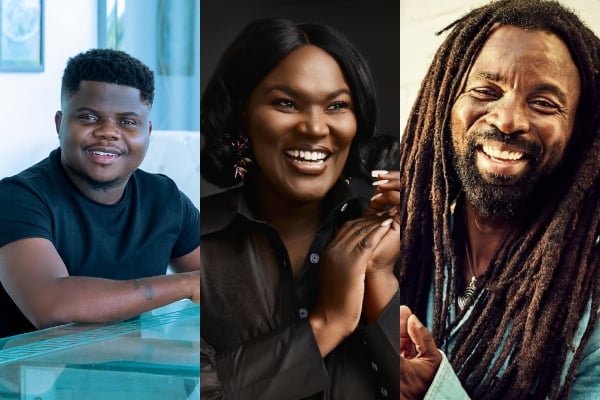

Ghanaians to receive diplomatic passports for African Unity as the Ministry of Foreign Affairs recognises five distinguished personalities for their role in promoting continental cohesion. The announcement, made by Foreign Affairs Minister Samuel Okudzeto Ablakwa, names Wode Maya, Denta Amoateng, Rocky Dawuni, Anita Erskine and Ibrahim Mahama as new diplomatic passport holders and envoys for the 2025 Diaspora Summit.
Recognising Champions of African Cohesion
In a statement on 12 August 2025, the Ministry explained that each recipient has devoted significant effort to uniting Africans and showcasing Ghana’s soft power abroad. Wode Maya, the travel journalist whose videos highlight everyday life across the continent, has amassed millions of followers by celebrating local cultures. Denta Amoateng, founder of the Ghanaian Professionals and Youth in the UK, has created networks that foster business and community ties between Africa and its diaspora.
Musician Rocky Dawuni, known for his blend of reggae and Afro-groove, has used his art to speak on peace, justice and Pan-African identity. Broadcaster Anita Erskine’s interviews and talk shows have given voice to issues ranging from governance to entrepreneurship. Finally, artist Ibrahim Mahama has taken Ghanaian contemporary art to leading galleries worldwide, using installations to explore themes of history, labour and African potential.
Diplomatic Passports and Their Privileges
Diplomatic passports in Ghana are normally reserved for high-ranking government officials, accredited diplomats and envoys on official business. They confer privileges such as diplomatic immunity in certain jurisdictions, expedited border processing and, in some cases, visa exemptions. By extending these benefits to influential civilians, the government seeks to empower them to travel more freely, represent Ghana’s interests and strengthen pan-African networks.
Minister Ablakwa noted, “These five individuals have become de facto ambassadors for African unity by virtue of their work. Granting them diplomatic passports will remove visa and customs hurdles that can hinder their engagements and amplify Ghana’s leadership role on the global stage.”
Appointment as 2025 Diaspora Summit Ambassadors
All five have also been designated as official ambassadors for the second African Diaspora Summit, scheduled in Accra from 17 to 20 December 2025. This high-level gathering will convene heads of state, policymakers, business leaders and cultural figures from across the continent and diaspora communities. The appointees will help mobilise participation, curate cultural programmes and host outreach events in key diaspora hubs such as London, New York and Johannesburg.
Their tasks will include speaking at preparatory conferences, liaising with diaspora associations, and working with the Ghana Tourism Authority and the diaspora affairs office to ensure a seamless summit experience. Organisers expect over 1 500 delegates, including African union heads and foreign ministers, to attend. The summit aims to forge strategies for investment, educational exchange and political advocacy that reinforce Africa’s global influence.
Political Context and Passport Recall
This development follows the decision earlier in the year by the new National Democratic Congress government to recall all diplomatic passports issued under the previous administration led by the New Patriotic Party. Critics had questioned the eligibility of some NPP-era passport holders, alleging misuse by individuals outside formal diplomatic service. Minister Ablakwa ordered a comprehensive review to ensure that only those actively serving national interests retained or gained diplomatic credentials.
By contrast, the newly issued passports reflect a strategic use of soft power. Rather than limiting privileges to career diplomats, the government is harnessing the reach of non-state actors who can advance Ghana’s profile in distinct arenas such as digital media, music, art and community development.
Implications for Ghana’s Soft Power and Pan-Africanism
Soft power plays a crucial role in today’s interconnected world. Influencers like Wode Maya and Anita Erskine reach audiences that formal diplomacy may struggle to engage. Their content and storytelling humanise Africa, counter stereotypes and encourage tourism and investment. Rocky Dawuni’s music has topped world reggae charts and drawn international attention to African causes. Ibrahim Mahama’s installations, constructed from repurposed jute sacks, provoke dialogue on resource use and innovation.
By formalising their roles, Ghana sends a message that Pan-African unity extends beyond intergovernmental agreements. It embraces culture, media and grassroots activism. The move may inspire other African states to adopt similar practices, leveraging creative talents as goodwill ambassadors.
Looking Ahead
Over the coming months, the five appointees will begin their official duties. Workshops in London and Washington DC are planned for September, while a cultural showcase in Lagos is scheduled for October. The Ministry of Foreign Affairs will publish a calendar of diaspora events on its website. Travel itineraries, speaking engagements and partnership announcements will follow in due course.
As Ghana prepares to host the Diaspora Summit, these diplomatic passports signal a new era in which civic leaders stand shoulder to shoulder with diplomats. Their combined influence promises to deepen ties between Africa and its global communities, laying the groundwork for collaborative projects in trade, education and governance.



